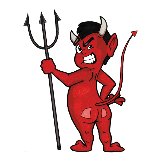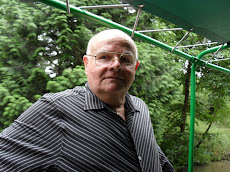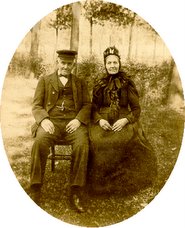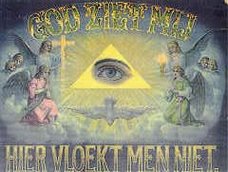Some time ago, an excellent friend of mine sent me a good wife’s guide out of “Housekeeping monthly” of 13 May 1955. Although it probably is a fake – even in 1955 no sane housewife would have behaved like that – it started me thinking about how much the world has changed since then.
In rural Belgium, farming was still the main occupation. There were very few cars. Running water, electricity and gas were not yet generalised. Central heating was an extravaganza for the rich and telephones quite exceptional. Inside toilets were rare and bathrooms almost non existent – most people bathed in a tub or a barrel on Saturday afternoon.
TV has been introduced in Belgium in 1953 ; the miracle box worked for a couple of hours each day and people flocked together to see it. The few recording machines worked with a wire. Washing machines were pre historical monsters and most people used slivers of hard soap instead of one thousand different types of washing powder.
People ate whatever was in season. No chicons in summer, no salads in winter, no exotic food at all. Chicken and choice cuts of red meat were luxury foods. People knew how fresh produce tasted.
Holidays abroad were for the rich ; most people could not even afford a short break at the seaside. Flying was an adventure, even for the rich, and took ages.
People died in droves of – now – very curable diseases. Social security was minimal, as were pensions. Misery and poverty were everywhere, and ignorance reigned.
Social classes were still very much a reality, and the churches were full. Not because there were that many more believers, but because one could not afford not to be seen in church on Sunday.
Every village still had its open spaces and rivers were full of fish. And people were easily satisfied and content with what they had, which very often was minimal, because they didn't know better.
No mass communication, no mass production, no mass consumption, no mass deception.
Since then, fortunately, people learned to be much more critical, to come up for themselves. They are in much better physical health (I have my doubts about the mental side ...). They live longer in comfort and luxury.
But the landscape has been ruined and the air and water poisoned. And greed has grown at an exponential speed.
People earn a decent living much more easily. Their free time has risen exponentially and so has all the shit (sorry, but that is the correct word) which has been invented to fill it. Life has become incredibly easier. But at what cost ? Multinationals reign the world ; their ethics – I mean their lack of ethics - have not changed, but their power has grown immensely.
And are we happier for it ? I very much doubt it. To be continued ...
For the article which set me off, see http://www.flickr.com/photos/jdawg/40565750/.
In rural Belgium, farming was still the main occupation. There were very few cars. Running water, electricity and gas were not yet generalised. Central heating was an extravaganza for the rich and telephones quite exceptional. Inside toilets were rare and bathrooms almost non existent – most people bathed in a tub or a barrel on Saturday afternoon.
TV has been introduced in Belgium in 1953 ; the miracle box worked for a couple of hours each day and people flocked together to see it. The few recording machines worked with a wire. Washing machines were pre historical monsters and most people used slivers of hard soap instead of one thousand different types of washing powder.
People ate whatever was in season. No chicons in summer, no salads in winter, no exotic food at all. Chicken and choice cuts of red meat were luxury foods. People knew how fresh produce tasted.
Holidays abroad were for the rich ; most people could not even afford a short break at the seaside. Flying was an adventure, even for the rich, and took ages.
People died in droves of – now – very curable diseases. Social security was minimal, as were pensions. Misery and poverty were everywhere, and ignorance reigned.
Social classes were still very much a reality, and the churches were full. Not because there were that many more believers, but because one could not afford not to be seen in church on Sunday.
Every village still had its open spaces and rivers were full of fish. And people were easily satisfied and content with what they had, which very often was minimal, because they didn't know better.
No mass communication, no mass production, no mass consumption, no mass deception.
Since then, fortunately, people learned to be much more critical, to come up for themselves. They are in much better physical health (I have my doubts about the mental side ...). They live longer in comfort and luxury.
But the landscape has been ruined and the air and water poisoned. And greed has grown at an exponential speed.
People earn a decent living much more easily. Their free time has risen exponentially and so has all the shit (sorry, but that is the correct word) which has been invented to fill it. Life has become incredibly easier. But at what cost ? Multinationals reign the world ; their ethics – I mean their lack of ethics - have not changed, but their power has grown immensely.
And are we happier for it ? I very much doubt it. To be continued ...
For the article which set me off, see http://www.flickr.com/photos/jdawg/40565750/.







No comments:
Post a Comment